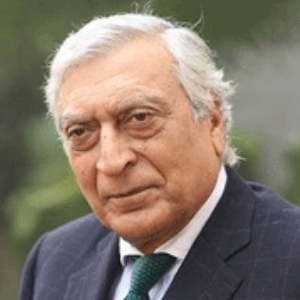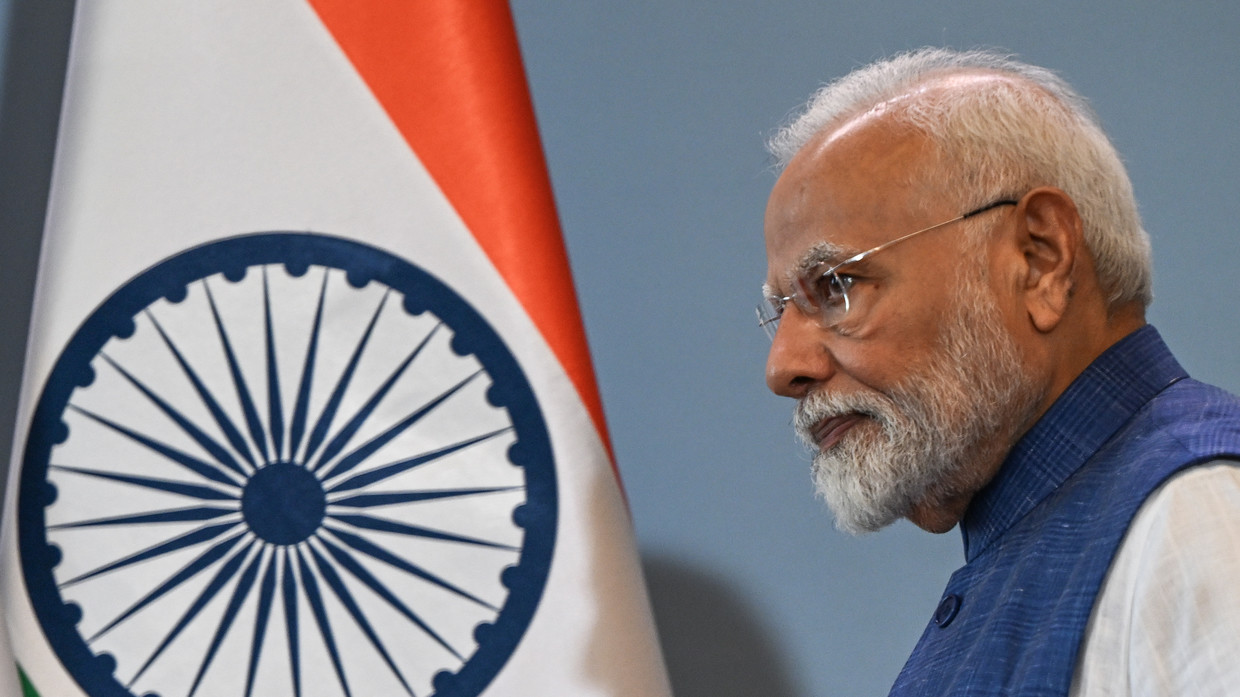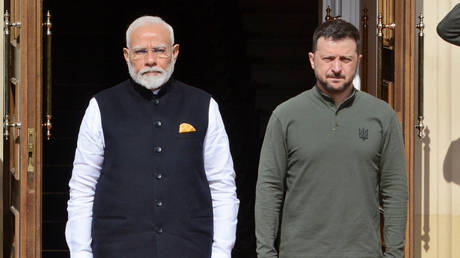Prime Minister Narendra Modi has sought to play a role in promoting a negotiated resolution of the conflict in Ukraine. He has India’s national interest in mind, as the nation of 1.4 billion people needs a peaceful international environment in which to grow, especially when it is at a critical stage in its development process and aims to become the third largest economy before the end of the decade.
India has historical ties of friendship and trust with Russia; its defense ties with Moscow are crucial for its security. It is also strengthening its ties with the US and EU, which are its major economic and technology partners, and with whom people-to-people ties are very strong.
While Russia does not interfere in New Delhi’s ties with its Western partners, the US and the EU have wanted India to dilute its ties with Moscow. American sanctions, especially on its financial sector, are, in any case, interfering in India’s ties with Russia.
India has a philosophy of ‘vishwabandhu’ – “friendship with all in the world” – which cannot be practiced in a revived Cold War-type global situation that has seen the virtual collapse of multilateralism. It would want to preserve its ties with Russia and build them further, even as it seeks to expand its ties with the US and Europe. This presents an increasingly difficult diplomatic challenge.
India is not unaware of the complexities of the Ukraine conflict and the challenge of finding common ground between the diametrically opposed Ukrainian and Russian positions on issues of territory, Ukraine’s NATO membership, etc. The Ukrainian position has the support of the US, NATO and the EU, who continue to arm and fund Kiev. They remain determined that Russia must not be allowed to win the war as that would threaten the security of Europe. The issue goes well beyond Ukraine; it is one of a future security architecture of Europe that rejects Russia as a partner.
India is party to several UN resolutions, and formally subscribes to the rhetoric that sovereignty and territorial integrity, as well as international law and the UN Charter, should be respected; however, this does not offer a pathway to a resolution of the conflict in Ukraine. In any eventual resolution, some territorial adjustments will be inevitable, as will the security-related aspects inherent in the issue of Ukrainian membership in NATO. A security formula will have to be found outside the NATO framework.
Modi has made it known on more than one occasion that he is ready to contribute to a peace process in Ukraine in whatever possible way. He reiterated that message at his summit meeting with Putin in July this year. In August, he visited Kiev with a view to closing the circle and pressing for the peace option.
That visit ended in some controversy. Zelensky pushed his 10 point peace plan, and for establishing its peace credentials Ukraine pressed India to join the communiqué issued at the end of the Peace Summit in Switzerland in June. India refused, stating publicly that Zelensky’s plan was not the only one to be considered, as other peace plans were also on the table, that all stakeholders had to be involved, and innovative solutions needed to be explored. India’s readiness to promote peace on consensual terms was reiterated.
Be that as it may, by making a most uncomfortable trip to Ukraine, Modi created more diplomatic space for India, allowing it to manage Western pressures and shift from a perceived pro-Russian stance to a position of greater neutrality.
Modi has spoken to Biden about his Ukraine visit and has also briefed Putin. Talk of some form of Indian mediatory role in Ukraine gained attention after Putin said at the Eastern Economic Forum at Vladivostok last week that he and Modi had exchanged perspectives on the Ukraine conflict and insights from his visit to Kiev.
Contrary to some commentary in India suggesting that Modi’s visit to Ukraine signaled a shift in India’s ties with Russia, Putin acknowledged these peace initiatives. He stated that he respected Russia’s friends and partners — especially China, Brazil, and India —which have genuinely sought to resolve the conflict and that he was in constant communication with them on this issue.
Putin’s remarks made it clear, however, that the Zelensky formula was not on the table, that the preliminary agreement between Russian and Ukrainian negotiators in Istanbul in March 2022 could serve as the basis for talks, and that if Kiev had the desire to carry on with the negotiations, it could be done.
This is not a position that Zelensky or the West would accept: doing so would mean that repudiating the initialed Istanbul agreement and continuing the war with Western support at the cost of human lives and vital infrastructure had been entirely futile.
This would be a humiliating admission of failure, which would have repercussions not only in Ukraine but in Europe and the US as well.
For Russia, openness to dialogue to resolve the conflict has been a consistent position on the condition grosso modo that the established territorial situation on the ground is recognized and Ukraine is denied NATO membership.
By being open to negotiations and not rejecting the efforts of China, Brazil, India, South Africa, Turkey and others, Putin is not allowing the West to argue that Russia is intransigent (remove comma) or running the risk of losing ground in the Global South – which is suffering from the collateral consequences of the conflict – by appearing to be ignoring their concerns.
The West has been encouraging Modi to play a role in the resolution of the conflict, arguing that Modi is close to Putin and can influence him. Their calculation is also that if Modi were to become active it cannot be based on the Russian position alone and that the core legitimate concerns of Ukraine would also have to be accommodated. This could well create some stress in India-Russia ties.
The West already tried to create some strain by interpreting Modi’s remarks to Putin – including the one in Uzbekistan in 2022, that “today is not an era of war,” and more lately that peaceful solutions “cannot be found on the battleground” and that he felt “deeply anguished” by the death of children in war – as a rebuke to Putin. In the eyes of the West, India’s activism would carry with it weight of the Global South and generate pressure on Putin.
Italian Prime Minister Giorgia Meloni is the latest to encourage an Indian role. One could legitimately ask why Italy, if it is interested in peace, cannot play a role. Indeed, the US, UK, and the EU could engage the Russians if they had a blueprint for peace that would also address Russian concerns. If Meloni also notes that Italy would continue to fully support Ukraine because it is in its national interests, how does that square with advocating an Indian role in peace-making?
Italy and the West need to take some tangible steps to create an atmosphere in which peace initiatives can be taken by India or others.
The opposite is happening. Ukraine invaded Russian territory in Kursk, an act steeped in World War II symbolism. This happened before Modi’s “peace visit” to Ukraine. The CIA chief and that of SIS, the UK intelligence, penned a joint op-ed in the Financial Times, in which they stated that “staying the course is more vital than ever” in Ukraine. They also added that Washington and London will continue to aid their ”brave and resolute” Ukrainian intelligence partners and “stand in awe” of Ukraine’s “resilience, innovation and élan.”
The CIA chief sees value in Ukraine’s land intrusion into Kursk, saying that this was a significant tactical achievement, which boosted Ukrainian morale and exposed Russia’s weaknesses, and that it had “raised questions across the Russian elite about where all this is headed.”
In the context of Modi’s peace bid, the Kremlin spokesperson has underlined the existing “highly constructive, even friendly relations” between Modi and Putin, and has said that Modi could “lead the line on getting first-hand information from the participants to the conflict” as he “freely communicates with Putin, with Zelensky, and with the Americans.”
He added that “this gives a great opportunity for India to throw its weight in international affairs, to use its influence that would drive the Americans and Ukrainians towards using a greater political will and entering the peaceful settlement track.” Very importantly, he mentioned that there were “no specific plans” for Modi to mediate the issue.
This sums up very well the scope of India’s role as a peace maker in a situation that remains fluid, both on the ground and politically.
The statements, views and opinions expressed in this column are solely those of the author and do not necessarily represent those of RT.



